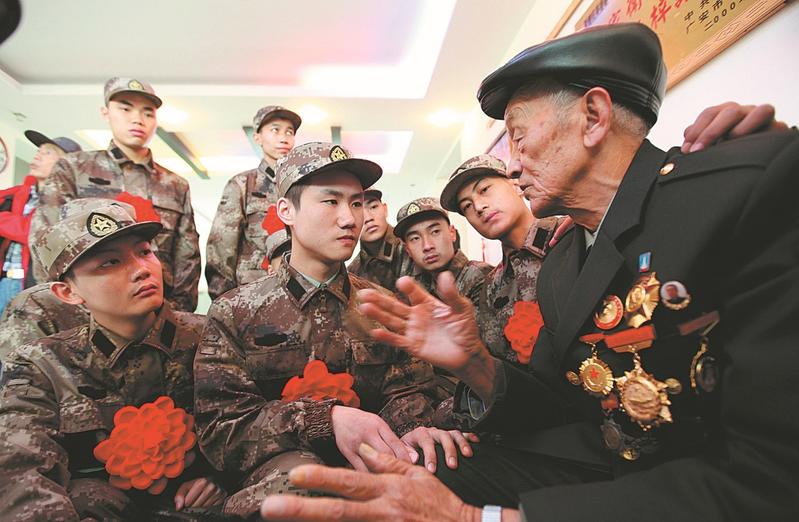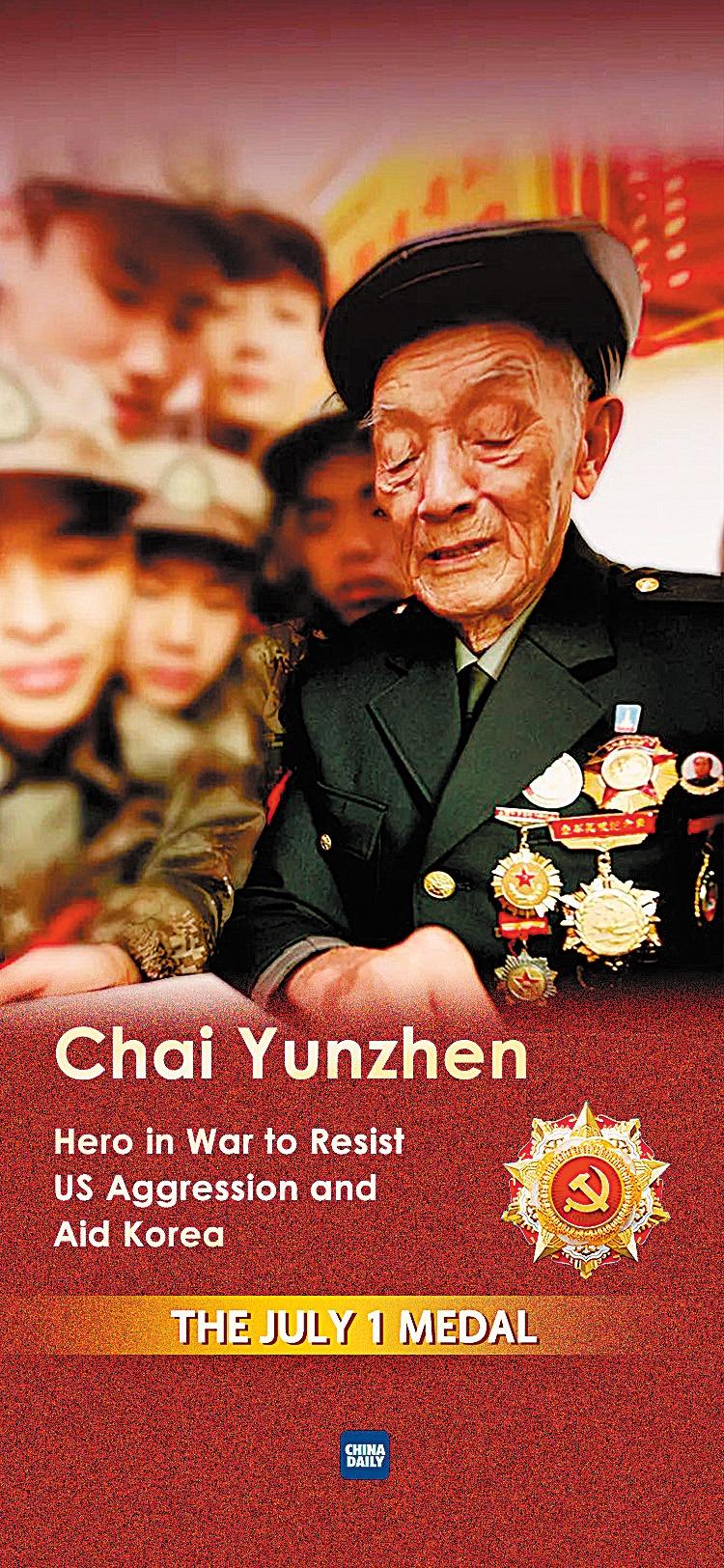Lauded in the DPRK, soldier thought missing in action is honored posthumously
 Chai Yunzhen tells his story to the visiting People's Liberation Army recruits at his home in Sichuan province. (PHOTO / XINHUA)
Chai Yunzhen tells his story to the visiting People's Liberation Army recruits at his home in Sichuan province. (PHOTO / XINHUA)
Thirty-five years after the War to Resist US Aggression and Aid Korea (1950-53) broke out, Chai Yunzhen, a former member of the People's Volunteer Army, set foot on the Korean Peninsula for the second time on a visit to the military museum in Pyongyang in 1985, only to discover that he had never truly left.
During his visit to the Democratic Republic of Korea's capital, the then 59-year-old veteran was surprised to see his portrait hanging in the museum, as the interpreter explained that the person in it was one of the 197,653 Chinese soldiers who sacrificed their lives to restore peace on the peninsula.
Chai was a squad head during the war, and the story of the four-man team he led, which captured three positions in 20 minutes, has long been remembered and celebrated in the DPRK.
On May 30, 1951, at the Battle of Bakdalbong, a mountain close to the war zone between the Republic of Korea and the DPRK, Chai's battalion was engaged in an operation to stop a multinational force from moving north.
It was a brutal six-day battle that led to the deaths of over 1,000 soldiers on both sides.
On the penultimate day, after being ordered to retake the three fortified positions, Chai waged an all-out attack with only three soldiers, the others already having been killed.
Fighting was fierce and they engaged in hand-to-hand combat, but their experience and bravery led them to victory.
When the battle was over, Chai was hospitalized with a missing finger and 24 wounds to his body.
For his remarkable contribution, he received the highest award given to China's combat heroes, but there was no one to claim the medal.
 (PHOTO / XINHUA)
(PHOTO / XINHUA)
Homophonic names are common in China, and this led to him being misidentified as another soldier, who was missing. The award was issued during the peak of the war, and there was no time to double-check the army roster properly. As a result, in the DPRK, he was considered a martyr, and the government not only had his portrait hung at the museum but also erected a monument on the mountain where he'd fought.
But Chai survived thanks to treatment, and after a year of rest and recuperation, he returned to his hometown in Yuechi county, Sichuan province, where nobody knew of his heroic deeds, and began a new life as a farmer.
In 1982, China organized a search for missing combatants from the war. Two years later, an ad seeking information about Chai in the Sichuan Daily was seen by his son and by sheer coincidence, the "martyr" was brought back to life.
In 1985, he was invited to visit Pyongyang to attend a commemoration of the war and was shocked to see his portrait in the military museum. He took the painting down and said to the guide, "I am not a hero. The true heroes are those who did not come back from the battlefield."
During the commemoration, he was also given the DPRK's highest war honor, and late leader, Kim Il-sung, personally pinned the Order of Freedom and Independence to Chai's dress.
When he returned from Pyongyang, he was greeted with flowers and applause. No longer just a farmer, Chai became a national hero and later served as a deputy in the National People's Congress for a while.
He died in 2018 at the age of 93. This year, as the Communist Party of China celebrates its 100th anniversary, he was posthumously awarded the July 1 Medal, the highest honor given to outstanding Party members.
Once again, the hero was not able to receive his award in person, but his bravery and dedication will always be remembered.


